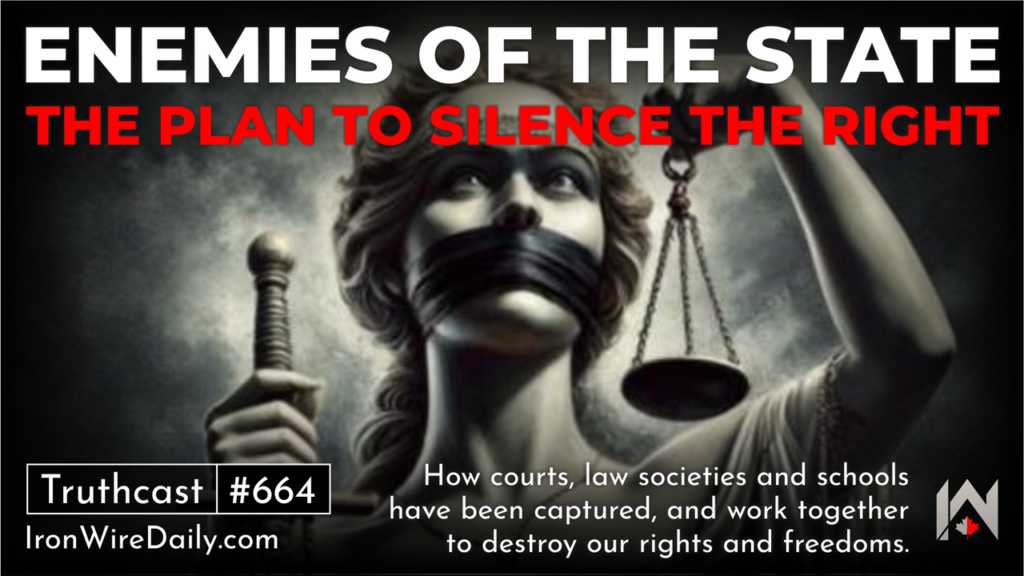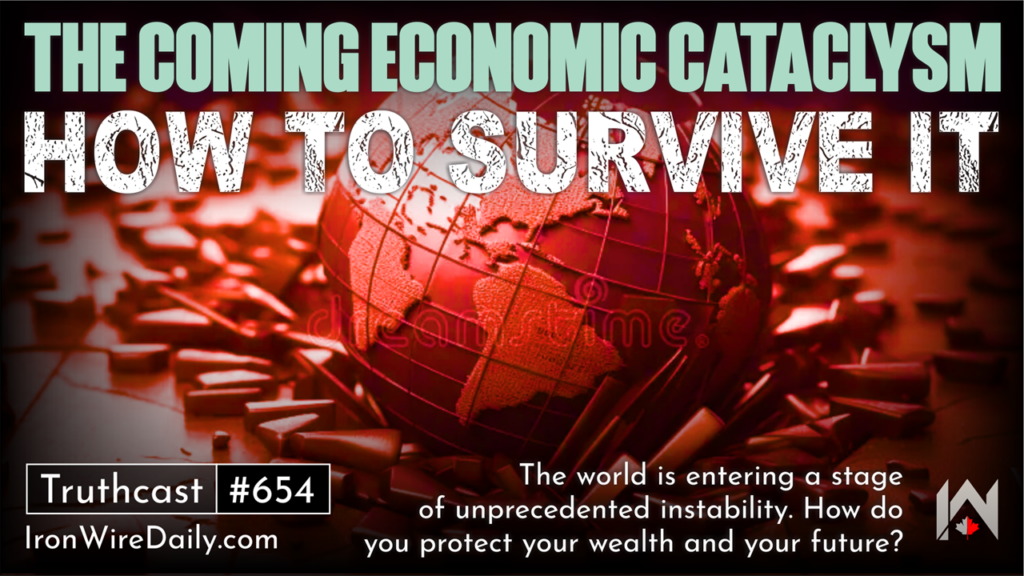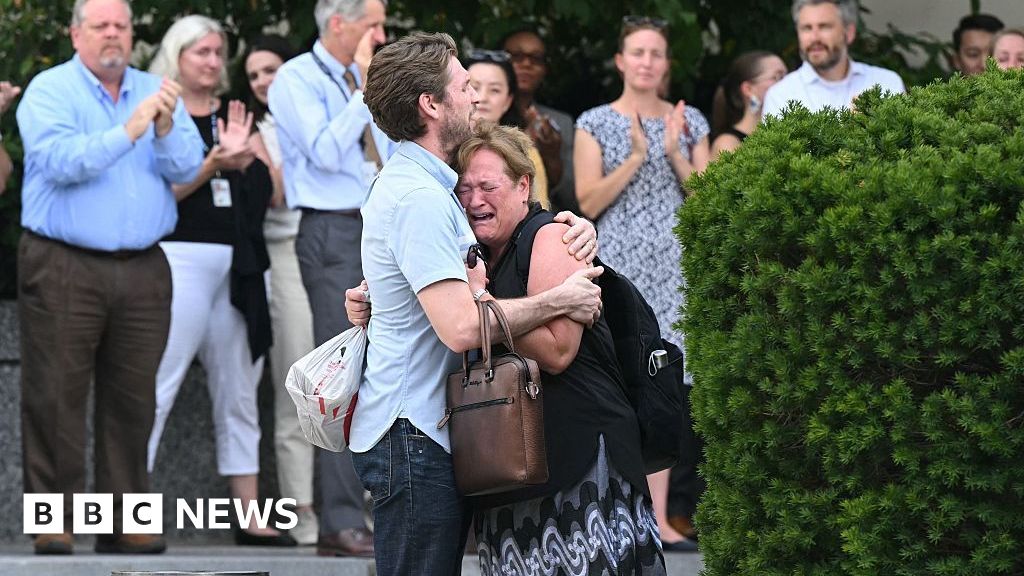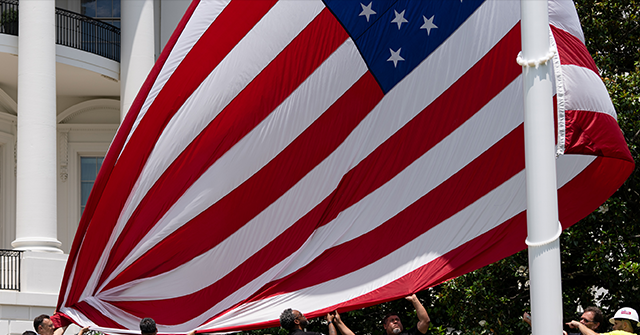(0:00 - 2:16)
Today's trans agenda has convinced tens of thousands of people that they are not the gender they were born as, and if they only transition, they will finally feel that they belong, that they fit in. And we hear constantly from the pro-trans movement that children who are not allowed to transition are at increased risk of suicide, a false narrative that is not borne up by the actual statistics, which in fact indicate that the opposite is true. Then there are those who come to regret their decision and detransition.
We seldom hear from them because their stories are not covered by mainstream media and, as incredible as it sounds, those who detransition are often accused of being transphobic and are silenced by those who once considered them as allies. Kellie-Lynn Pirie and Faith Groleau are two such women. They transitioned to a male identity, took hormones, underwent surgery, and lived for a time as men.
But both of them later came to regret that decision and to finally become comfortable with who and what they really are—women. And both are dealing with the lasting effects of having transitioned. Even now, after detransitioning, both of them have deep voices and appear in some ways to be masculine.
But at heart, they are, undeniably, women. So what happened? Why did these courageous women who are now telling their stories choose to follow the trans agenda? Their answers are at once different and the same. But it comes down to the fact that in today's world, transitioning has taken the place of real therapy.
People who feel out of place are given a constant narrative by health care and mental health professionals that transitioning will fix all of their problems. But that narrative couldn't be further from the truth. Kellie-Lynn, Faith, thank you so much for coming into the studio today.
(2:17 - 3:19)
Thank you for having us. Now, both of you at one point in your lives transitioned and then you made the choice to detransition. And so we're here today because I really wanted to find out what your thought processes were going through all of this.
Now, first of all, at what age did you both transition? I was 37. I was about 15 when it started socially and then 16, 17 and 18 as it started chemically. So I wanted to know what was going through your minds at the time that you made the choice to transition? What societal pressures or personal struggles were you having that put you in that space to feel that this was something that was going to, I don't know, make you more comfortable? Please explain it to us.
And Kellie, then I want to start with you because you were much older when you transitioned. And obviously as an adult, you were able to take the time to really think about this, or at least I'm assuming you did. Perhaps I'm wrong.
So if you please tell us where you're at at that point. I struggled with addiction. I came out of a background where my mother, when I was very young, chose to marry a convicted pedophile.
(3:21 - 4:23)
He was involved with drugs and alcohol, which got back together with my dad. My dad was an alcoholic. So I learned that alcohol helps deal with feelings.
And so a lot of the awkwardness, a lot of the discomfort with being an adult sexual being, I covered up with the alcohol. So when I got sober, I kind of crash decelerated into feelings, into being aware of people looking at me, into like I was a beautiful woman when I was younger. And I was really uncomfortable with that.
I had a really hard time in social settings because it felt like the emotions of everyone around me was happening to me. So when I was living in a woman's support recovery, there would be up to 20 other women in the house. So what they experienced as me being incredibly controlling of them, I felt like a situation where everything was just out of control.
(4:24 - 7:12)
And if I'm reading this correctly, you were a very empathetic person and you were feeling everything they were feeling, which must've been overwhelming. Well, drinking, I never really learned to regulate my own emotions. Yes.
It felt like really scary. So when I talked to my counselor, because I'd also seen men who were living their lives as women, as soon as I was like, there's this individual, he thinks he's a woman. Could this be what's going on for me? Well, my drug and alcohol counselor was at the beginning of the affirmation model.
So she simply affirmed, Oh, of course, Kellie, any man would be incredibly uncomfortable living with 20 women. Right? So that's the direction. And then I latched onto this idea that by living my life as a man, all of this awkward feeling stuff that I had been wrestling so hard with, it would simply resolve because the greatest gift of God in recovery is your feelings.
The hardest thing you're ever going to learn to deal with to stay sober is your feelings. So it was like, fix. And I had been almost a year in therapy and I was so tired of therapy.
And it was like, this is a fix that'll just fix it. And I fixated on the external application. Faith, what was your experience? I was also sexualized when I was younger.
I was abused by someone I shouldn't have been in doing that before having any sort of feminine characteristics that really didn't make it desirable to have more. How old were you when this started? I don't actually know. I know that there was an instance.
I remember myself when I was six, but it might've happened earlier than that. I don't know. There was an instance when I was seven, where I remember specifically telling him that's not going to happen again.
You can't do that. And he listened. He tried again when I was eight, but not, not very seriously.
And then that never happened again from him. But even at school on picture day, mom wanted me to wear dresses because she liked me looking pretty. And one of the boys came up with a stick and tried to look under my skirt.
And I donkey kicked the stick into his gonads and the teacher actually got mad at me. And that was just kind of how the school was in general, because I was too physically violent and I could hurt them a lot easier than I should have been able to. Um, so I just stopped wearing dresses and really was not a huge fan of the femininity.
(7:12 - 7:50)
And I also was just very naturally boyish. I liked playing in the dirt. I liked picking worms up and chasing the girls with it.
You know, like I was one of the guys in that sense, always. When I was nine, I even told my mom, Hey, I think I was supposed to be born a boy. And she said, no, that's just a tomboy.
You just get along with the boys better. That's, you know, that's normal. That's fine.
I was like, Oh, okay, cool. And when I was about 15, after just kind of struggling through all of that, I had other mental health issues as well because of the sexual abuse, cause it wasn't really addressed. Um, and around 15, I also found a show called I Am Jazz.
(7:51 - 9:04)
And that was airing on TLC around then. And that show features a young boy who gets transitioned basically at like two, um, and then onward into a little girl. Um, and seeing that, especially with this kid being younger than I was, I was like, Oh, cool.
So it's okay. Science accepts it. This is an option.
And I came from a very religious background. And so I figured all of their pushback was just because it was their religion and their faith that had nothing to do with it being science or not. And so I clung to the science, um, because they're supposed to be evidence-based and I'm supposed to be able to on that factually.
By about 16, I was given puberty blockers by 17. I believe I was approved for top surgery by 18. I was given testosterone.
Um, and then because I was a specifically youth clinic that I was going to, once I turned 18, I aged out of the system. So the doctors just kind of handed me off to somebody else and no longer followed up with me. Um, I was deemed a successful transition in this clinic.
And that was just kind of how they left it. The diagnosing physician did not know I had other underlying mental health conditions. This is per her own admission.
(9:04 - 17:42)
I filed claims against the doctors and in their responses, she even says I was following the DSM five, but I didn't know that there were other mental health issues. So for her not to know, either she didn't do a cognitive assessment properly, or she didn't have access to my medical records, one or the other or both. She might not have had access to either, but I had physical health doctors who had access to my mental health diagnoses.
So for her not to as a therapist or as a pediatrician, I don't really know how that works. Um, but she didn't know that I had other problems. And, uh, so I was just kind of allowed to diagnose myself and was rushed through the system.
Um, and I was fine being trans, um, and around 2020, I would have been 20 years old as well. Um, COVID hit. So the vials that I was getting the testosterone and they ran out of those.
And so they ended up giving me a new version, which is androgel. And that's a topical version that's in these little packets. And that was significantly more expensive.
And at 18, 19, 20, I didn't have enough money to cover $300 for a three month supply. So I only got one month supply and just kind of rationed it. And by 21, my father passed away 22, my mom's dad passed away.
And so I was on antidepressants and testosterone. And I just kind of didn't keep using them properly because I was between houses and doing a whole bunch of stuff. And so I couldn't keep up with medications consistently.
So by 22, I was off of everything on my own, no doctoral care, um, around 17 or 18. Actually, I had gotten, um, birth control. And because of other physical health issues, I couldn't get estrogen, but they let me have progesterone based, um, birth control.
And with that, the doctors told me, Oh, great, it shouldn't interfere with the testosterone, that should be fine. So the, the lady who was giving me my injections, who was also not the diagnosing physician, nor was it the person who prescribed the medication, it was a completely different doctor. She might not have even been a doctor.
I think she was just like a nurse. But she was giving me my injections. And I asked her, I'm like, does the birth control basically do the same thing as the Lupron and the puberty blockers? Can I go off the puberty blockers? And she's like, I don't know.
We can see what happens. Sure. Go off and see what happens.
And so yeah, by 22, I was off of everything, but I was still living as a trans man. I was just slowing myself down because I didn't care enough about it. Um, and then by belief, 23 or 24, no, those files came out this year.
So around 24, um, I actually saw some information that really showed doctors don't know what they're doing. Um, and in speaking with other trans people who do feel like it worked for them, I realized what they're feeling as dysphoria was not at all what I was dealing with. And so I was just completely misdiagnosed.
I misdiagnosed myself. The doctors let me and affirmed that, um, and then didn't follow up with me either on their own accord. They just left me to somebody else who also didn't follow up.
Um, so by 24, I started, uh, April of this year, de-transitioning and coming back out as faith and saying, whoops, my bad. But, uh, yeah. Kelly, now faith has told us her journey through this.
I'd like to hear yours, but what I'm really wanting to hear is not so much the, I mean, as comfortable as you are describing the whole process, but what I really want to know is what was your mental state, your emotional state as you were going through this transitioning process? This will fix what I feel uncomfortable with. Um, my feeling awkward, my feeling odd, my, um, social anxiety. When I'd show up to a, um, support group for my addictions, I would deliberately show up five minutes late and leave five minutes early.
So I didn't have to deal with the people, but I understood that isolation and addiction is a really bad idea. So I needed to be hearing the stories of other people. I needed to be around other people, but I didn't know how to be social with other people.
Like greeting you today, shaking your hand, saying hello, that would have been a huge emotional, I don't know how to do this, right? I have to say you've made amazing progress because I didn't sense anything wrong at all. You were, you were very comfortable. And today I'm very comfortable with that.
Um, so into this idea that I would have been better off born a boy, I always understood as a girl, I didn't come from that background pathway. I was just like, boys have better, um, was spoken the idea that, Oh, you can live as a man and this will fix all of the discomfort you're feeling. Cause I'd been in a lot of women's only spaces.
That's part of, um, this was in the early 2000s, 2004 to 2002 to 2004. And at that time, by definition, a woman's support recovery was people who had been born girls. You couldn't at that time, self ID as a man couldn't self ID into my sexual abuse trauma group.
He couldn't self ID into, um, any of the social groups I was going to. Um, so it was by definition women only. So there was this idea, um, presented, especially after it started getting affirmed that my awkwardness in those settings was because any man would feel uncomfortable around that many women.
Um, when I started talking, when I was in the journey, after I'd had my hysterectomy 2006, I started talking a little bit about, I miss the company of women. I, I, I actually miss those conversations. I miss being able to, you know, be around and they're like, that's just internalized transphobia.
Um, and you know, can you imagine how the poor, well, they used a different term, but how the poor men on estrogen feel listening to you sitting here saying, I want to be in women's space, but I missed it. I really had really started to miss the company of women as a woman. And, um, so when I was in the peer support groups at Vancouver Coastal Health, it was very much as a man, you have all this male privilege.
How dare you sit here and talk about missing being in female spaces. You have no right to be there as a man. And imagine what the poor trans women listening to you are feeling right now.
Cause they're desperately trying to get into these spaces and they're being rejected by these transphobic women. So, but before yourself, I mean, you've described some of what you were feeling, but when you went through the process and completed transitioning as far as you went with it, um, at that point in time, did you feel a sense of relief or were you already starting to suspect you might've made a mistake? The younger people call it a dopamine hit. So beginning to wear men's clothes and people changing the way they interact with me in the beginning felt really good.
And there's also the social taboos that you're crossing. Um, the first time a male, like I had, um, always had abnormally high levels of testosterone for a woman. So once I started injecting testosterone within a year, I had facial hair.
Um, generally it takes three to five years. Um, so I already had the basis of the facial hair there. Um, so the first time a friend took, um, escorted me into a men's washroom to use the men's washroom rather than the woman's washroom.
So there's all these dopamine hits and I didn't struggle with depression so much as I wallowed in it. Um, so for someone who lived that having this hyper-focus of the next blow, of the next step, can for a time, as long as you've got a next step, the depression, I felt just kind of pushed to the side because I was hyper-focused on the next step. Dopamine hits were a break from the depression.
(17:42 - 17:44)
Yes. And things to look forward to. Yes.
(17:44 - 18:25)
What will be the next experience I'll get that hit from? Yes. Okay. Yeah.
And then very much in the support groups, they're telling you how, Kelly, this is what you say to your doctor to get what was back then called a carry letter. And that was a letter explaining why my ID was female and my appearance was male, and I was standing in whatever situation trying to use my credit card. Right? Um, so this is what you say to your doctor and you need to get your carry letter because that starts your time clock and your time clock is how much time, excuse me, needs to pass to qualify for the next step.
(18:26 - 19:04)
So at that time I needed six months from my carry letter to getting a referral to the, um, gynecologist who was prescribing women testosterone. So from the date of my carry letter, um, when the carry letter was six months old, I went to the family doctor. This is what to say to the family doctor to get the family doctor to refer you to this surgeon who's going to do your hysterectomy, but he'll also start you on testosterone because under his protocols, you need to be on testosterone for X amount of months before he'll put you on your surgery, on his surgery list to have testosterone.
(19:06 - 19:22)
Because of the sexual abuse, when I was 18 years old, I was dying of a, I had chlamydia, gonorrhea, and syphilis, and I had what was called a pelvic inflammatory disease. That took a year of my life to clear up. I was on and off.
(19:22 - 19:28)
I was in the hospital. The antibiotics that was prescribed were so heavy. I was actually in the hospital.
(19:29 - 19:42)
They had discussed whether or not they needed to do abdominal surgery or they were going to go the antibiotic route. They decided to go the antibiotic route first to see if they could clear up the infection. Eventually it did.
(19:42 - 20:09)
However, the damage meant that a reproductive system that is designed to be self-cleaning, never self-cleaned correctly. So, I had constant problems. So, I knew getting the hysterectomy, for whatever reason I got the hysterectomy, would remove all of the parts of that system that weren't working correctly, that were causing the constant problems.
(20:09 - 20:26)
So, I was hyper-focused from the day I heard. I don't think anything would have stopped me on the process from the day I heard that I could get a hysterectomy by transitioning. Like, that was my goal.
(20:29 - 20:53)
So, after the hysterectomy was when the questions started coming in. What have I done? Into that, when I spoke them out loud, was this is what's called internalized transphobia. So, I've internalized the society's response to me being a woman who's living as a man.
(20:53 - 21:11)
Because at that time that the name for someone like me was actually a female to male transsexual. Or we were just starting with the whole transgender thing and then the men were called a male to female. So, there was the recognition that my basic biology, I was born a girl.
(21:13 - 21:26)
This assigned at birth is something that came along after I was no longer part of the process. But in the early 2000s, the basics of biology was still recognized and talked about openly. All right.
(21:27 - 21:39)
Faith, what was your emotional mental state as you were going through transitioning? I was suicidal. I was angry at my body, at what had happened to me and at God. I was mad my parents didn't protect me.
(21:40 - 21:56)
The doctors actually weaponized my suicidal ideation. So, I went in suicidal one night and to the emergency room and they thought it was because I was gender questioning. And so, they just rushed me into seeing this pediatrician who was gender affirming and all of that.
(21:57 - 22:09)
But they never looked into why I was suicidal. I told them I was sexually abused, but they just kind of passed it off as, oh, well, that just seems to be a commonality now. They didn't address it.
(22:10 - 22:24)
They knew I had a different therapist who was dealing with other mental health issues, but they just left that as a separate issue. They never thought that they were ever connected. They weaponized the fact I was suicidal and said to my mom, well, your kid wants these drugs.
(22:25 - 22:49)
If we don't give them the drugs, they'll kill themselves. So, do you want a living daughter or a dead son? Right, like that's the final phrase everyone gets. Before we continue, now, I myself fortunately never experienced sexual abuse growing up, but I've spoken to people who have and what I've heard is a very constant theme that people who've been through that end up experiencing a great deal of self-loathing, which to my mind makes no sense at all because you were the victim.
(22:50 - 22:56)
But is that what was causing your suicidal ideation that you felt this sense of self-loathing because you'd been abused?














